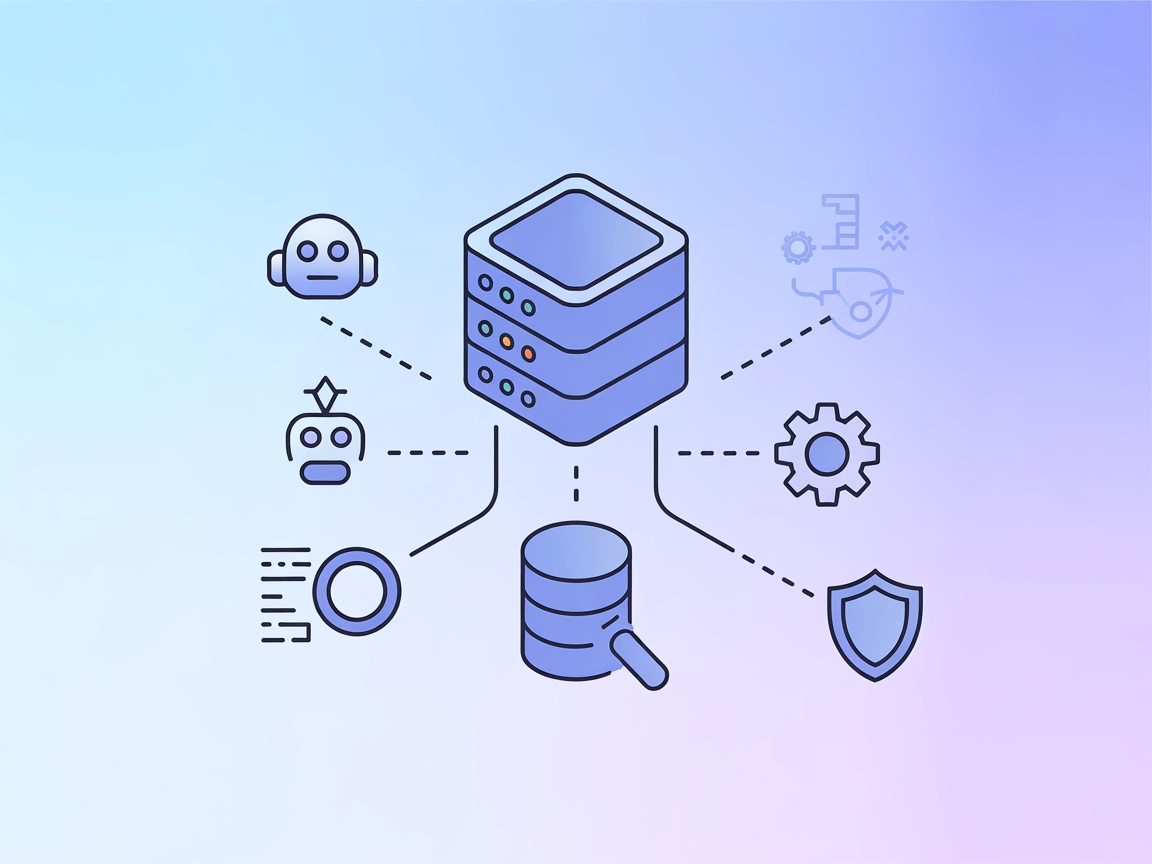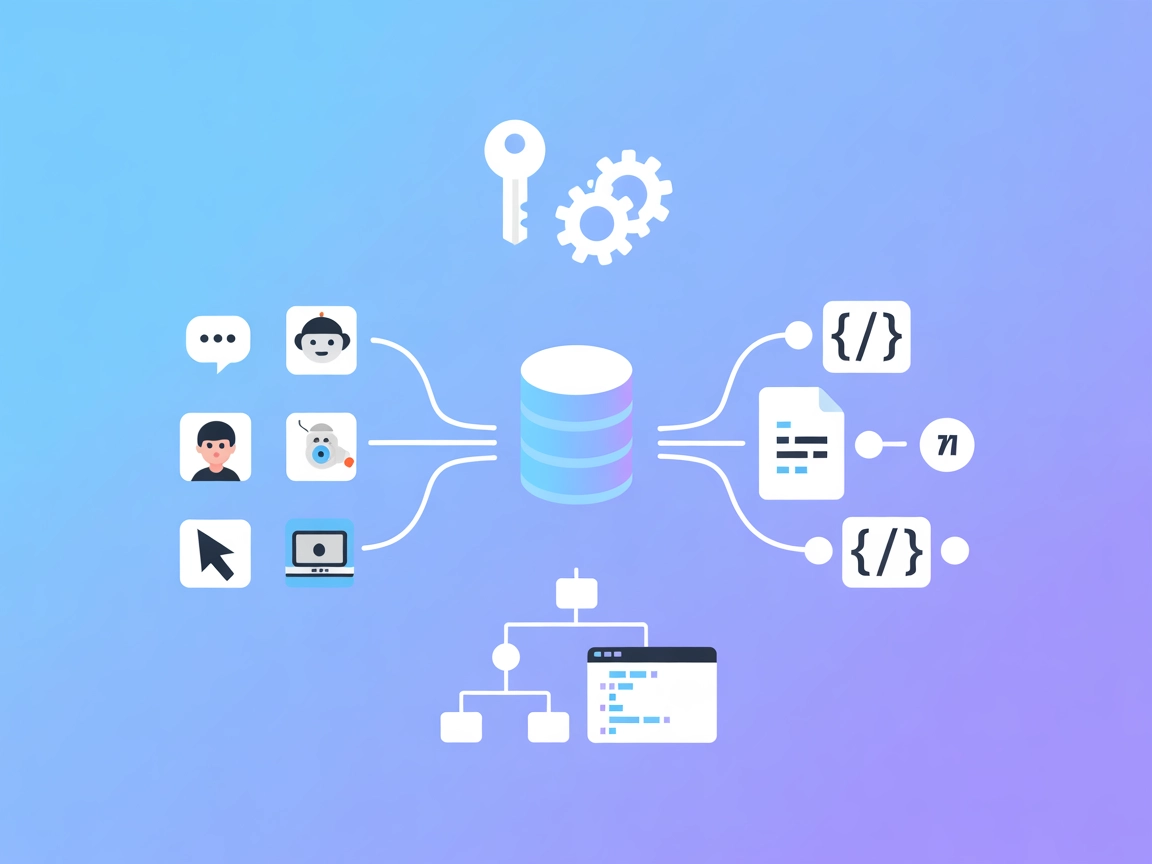
OpenSearch MCP Server Integration
The OpenSearch MCP Server enables seamless integration of OpenSearch with FlowHunt and other AI agents, allowing programmatic access to search, analytics, and c...

Connect FlowHunt to OpenCTI with the OpenCTI MCP Server for powerful, automated threat intelligence and enhanced security workflows.
FlowHunt provides an additional security layer between your internal systems and AI tools, giving you granular control over which tools are accessible from your MCP servers. MCP servers hosted in our infrastructure can be seamlessly integrated with FlowHunt's chatbot as well as popular AI platforms like ChatGPT, Claude, and various AI editors.
OpenCTI MCP Server is a Model Context Protocol (MCP) server that enables seamless integration with the OpenCTI (Open Cyber Threat Intelligence) platform. By acting as a bridge between AI assistants and the OpenCTI threat intelligence database, it allows AI clients to query, retrieve, and interact with cyber threat intelligence data using a standardized interface. This server facilitates tasks such as searching for malware information, querying indicators of compromise, managing users and groups, and performing file operations. Developers can use it to automate security workflows, enrich LLM outputs with real-time threat data, and streamline access to actionable intelligence within their development and operational environments.
No prompt templates are listed in the repository or documentation.
No explicit resources are described in the available documentation or repository files.
No specific tools are listed in the documentation or code. The documentation only describes high-level features and API capabilities, but does not enumerate MCP tools or their function signatures.
.env.example to .env and update with your OpenCTI credentials.{
"mcpServers": {
"opencti": {
"command": "node",
"args": ["path/to/opencti-server/build/index.js"],
"env": {
"OPENCTI_URL": "${OPENCTI_URL}",
"OPENCTI_TOKEN": "${OPENCTI_TOKEN}"
}
}
}
}
.env.example to .env and fill in your OpenCTI details.{
"mcpServers": {
"opencti": {
"command": "node",
"args": ["path/to/opencti-server/build/index.js"],
"env": {
"OPENCTI_URL": "${OPENCTI_URL}",
"OPENCTI_TOKEN": "${OPENCTI_TOKEN}"
}
}
}
}
.env.example as .env and set your OpenCTI URL and token.{
"mcpServers": {
"opencti": {
"command": "node",
"args": ["path/to/opencti-server/build/index.js"],
"env": {
"OPENCTI_URL": "${OPENCTI_URL}",
"OPENCTI_TOKEN": "${OPENCTI_TOKEN}"
}
}
}
}
.env.example to .env and update with your values.{
"mcpServers": {
"opencti": {
"command": "node",
"args": ["path/to/opencti-server/build/index.js"],
"env": {
"OPENCTI_URL": "${OPENCTI_URL}",
"OPENCTI_TOKEN": "${OPENCTI_TOKEN}"
}
}
}
}
{
"mcpServers": {
"opencti": {
"command": "node",
"args": ["path/to/opencti-server/build/index.js"],
"env": {
"OPENCTI_URL": "${OPENCTI_URL}",
"OPENCTI_TOKEN": "${OPENCTI_TOKEN}"
}
}
}
}
Using MCP in FlowHunt
To integrate MCP servers into your FlowHunt workflow, start by adding the MCP component to your flow and connecting it to your AI agent:

Click on the MCP component to open the configuration panel. In the system MCP configuration section, insert your MCP server details using this JSON format:
{
"opencti": {
"transport": "streamable_http",
"url": "https://yourmcpserver.example/pathtothemcp/url"
}
}
Once configured, the AI agent is now able to use this MCP as a tool with access to all its functions and capabilities. Remember to change “opencti” to whatever the actual name of your MCP server is and replace the URL with your own MCP server URL.
| Section | Availability | Details/Notes |
|---|---|---|
| Overview | ✅ | Basic description in README |
| List of Prompts | ⛔ | No prompt templates listed |
| List of Resources | ⛔ | No explicit MCP resources described |
| List of Tools | ⛔ | No specific tool list in documentation |
| Securing API Keys | ✅ | Environment variable usage documented |
| Sampling Support (less important in evaluation) | ⛔ | No mention of sampling support |
Between the available documentation and code, OpenCTI MCP Server provides a clear overview and robust setup instructions, but lacks explicit details on resources, prompts, tools, and advanced MCP features like sampling or roots configuration.
Based on the evidence, this MCP server provides a good foundation for OpenCTI integration and has solid setup and security practices, but it lacks transparency around MCP-specific features (like tools, resources, prompts, and sampling). As such, we would rate this MCP implementation a 5/10 for overall completeness and usability for LLM integration.
| Has a LICENSE | ✅ (MIT) |
|---|---|
| Has at least one tool | ⛔ |
| Number of Forks | 10 |
| Number of Stars | 18 |
The OpenCTI MCP Server enables FlowHunt (and other AI platforms) to access and automate cyber threat intelligence workflows by acting as a bridge between AI agents and the OpenCTI database. It standardizes access to threat intelligence such as malware, indicators of compromise, attack patterns, and user management.
Key use cases include automated threat intelligence retrieval, SOC tool integration, managing users/groups in OpenCTI, querying STIX objects, and enhancing AI-driven incident response with real-time data from OpenCTI.
No specific prompt templates or explicit tool signatures are provided in this MCP server. The integration is focused on standardizing access to the OpenCTI API rather than providing prebuilt prompts or tools.
API credentials are secured using environment variables. Never hardcode your OpenCTI URL or token directly in configuration files. Always use a .env file or environment management system for sensitive data.
Yes, the OpenCTI MCP Server is compatible with Windsurf, Claude, Cursor, and Cline clients. Specific configuration steps are provided for each.
Based on available documentation and MCP features, this MCP server rates a 5/10 for completeness and transparency, offering robust setup and security but lacking in detailed tool/resource exposure.
Deploy the OpenCTI MCP Server with FlowHunt to automate cyber threat intelligence access, enrich LLM responses, and streamline SOC operations. Secure, scalable, and efficient.

The OpenSearch MCP Server enables seamless integration of OpenSearch with FlowHunt and other AI agents, allowing programmatic access to search, analytics, and c...

The OpenAPI MCP Server connects AI assistants with the ability to explore and understand OpenAPI specifications, offering detailed API context, summaries, and e...

The Model Context Protocol (MCP) Server bridges AI assistants with external data sources, APIs, and services, enabling streamlined integration of complex workfl...
Cookie Consent
We use cookies to enhance your browsing experience and analyze our traffic. See our privacy policy.